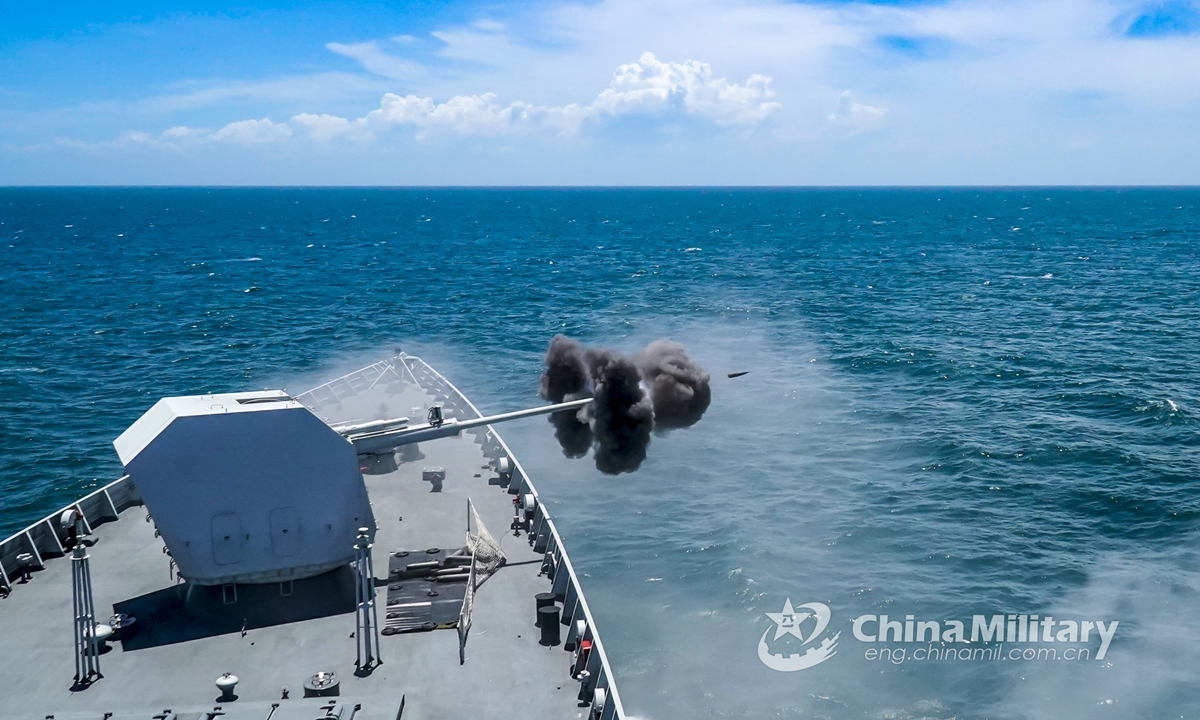Australia unwisely boards US leaky boat to meddle in South China Sea
Source: Global Times Published: 2020/7/25 19:12:58

File photo:China Military
In a filing to the United Nations on Saturday, the Australian government said there was "no legal basis for China to draw straight baselines connecting the outermost points of maritime features or 'island groups' in the South China Sea." Australia's rejection of China's claim to key parts of the South China Sea comes after US Secretary of State Mike Pompeo issued a statement accusing China's South China Sea claims "completely unlawful" on July 13. The US statement failed to cause a ripple among South China Sea relevant claimants, so why has Australia jumped in and joined the US in provoking China at this time?
It's not surprising. If there is only one country that will show support for the US, it will be Australia. Members of Five Eyes alliance, particularly Australia, the UK and Canada, nowadays are increasingly following the US lead in confronting China.
But when it comes to foreign policy, Australia is not as tactful as the UK or Canada. The UK mainly takes a wait-and-see attitude on important issues such as the South China Sea and often leaves itself some leeway, while Canada doesn't want to fiercely irritate China as the case of Meng Wanzhou, Chinese tech giant Huawei's chief financial officer, has already caused it a lot of trouble.
From the US perspective, it's actually very embarrassing that Pompeo's statement hasn't received much reaction from Southeast Asian countries, especially given that Washington has really spent a lot of efforts to mobilize them.
By contrast, although China-Australia relations have already drastically soured, Australia has chosen to show its loyalty for the US. It rejected China's claim at the UN level, which will have quite a negative impact. It seems Australia hasn't clearly thought about the consequences. It hopes to curry favor with the US, but it's doubtful whether the move will bring Australia any substantial benefits.
The US and Australia are playing the South China Sea card. But their efforts to pressure China will be in vain if they cannot rope in regional countries to their side.
US Secretary of Defense Mark Esper on Tuesday accused the Communist Party of China of bullying ASEAN countries out of the area's fishing grounds and an estimated $2.6 trillion in potential offshore oil and gas revenue, in an obvious attempt to drive a wedge between China and ASEAN.
The fact is, the position of ASEAN countries is complicated. On one hand they hope to take advantage of the US to balance China. But on the other, they don't want to ruin their relations with China.
Australia has recently taken a high-profile stance on the South China Sea issue. It is reported that Australian naval vessels "ran into unexpected encounters" with Chinese warships after participating in a US-led joint military exercise in the South China Sea. However, the Australian warship reportedly did not enter within 12 nautical miles of Chinese islands. It can be seen from this that Australia doesn't want a direct confrontation with China. Australia actually knows the bottom line. It mainly wants to express its stance to the US and make some anti-China gestures to win support from the US. However, from China's perspective, it's recklessly making provocations.
The relationship between China and Australia has now deteriorated to a very bad point, and the chance for a turnaround is slim in the near future. One of the main reasons is that Australia's policy lacks independence, and its current choice is to closely follow the US lead. If Australia further provokes China, not only on political relations, but also economic relations, the damage to Australia should be expected.
It should be said that so far, Australia has not learned a great lesson. If it still insists on going on the current path, the possibility that China will take strong countermeasures cannot be ruled out. For example, China could target substitutable agricultural products such as beef and wine.
The article was compiled by Global Times reporter Yu Jincui based on an interview with Zhou Fangyin, a professor at the Guangdong Research Institute for International Strategies. opinion@globaltimes.com.cn
Posted in: VIEWPOINT